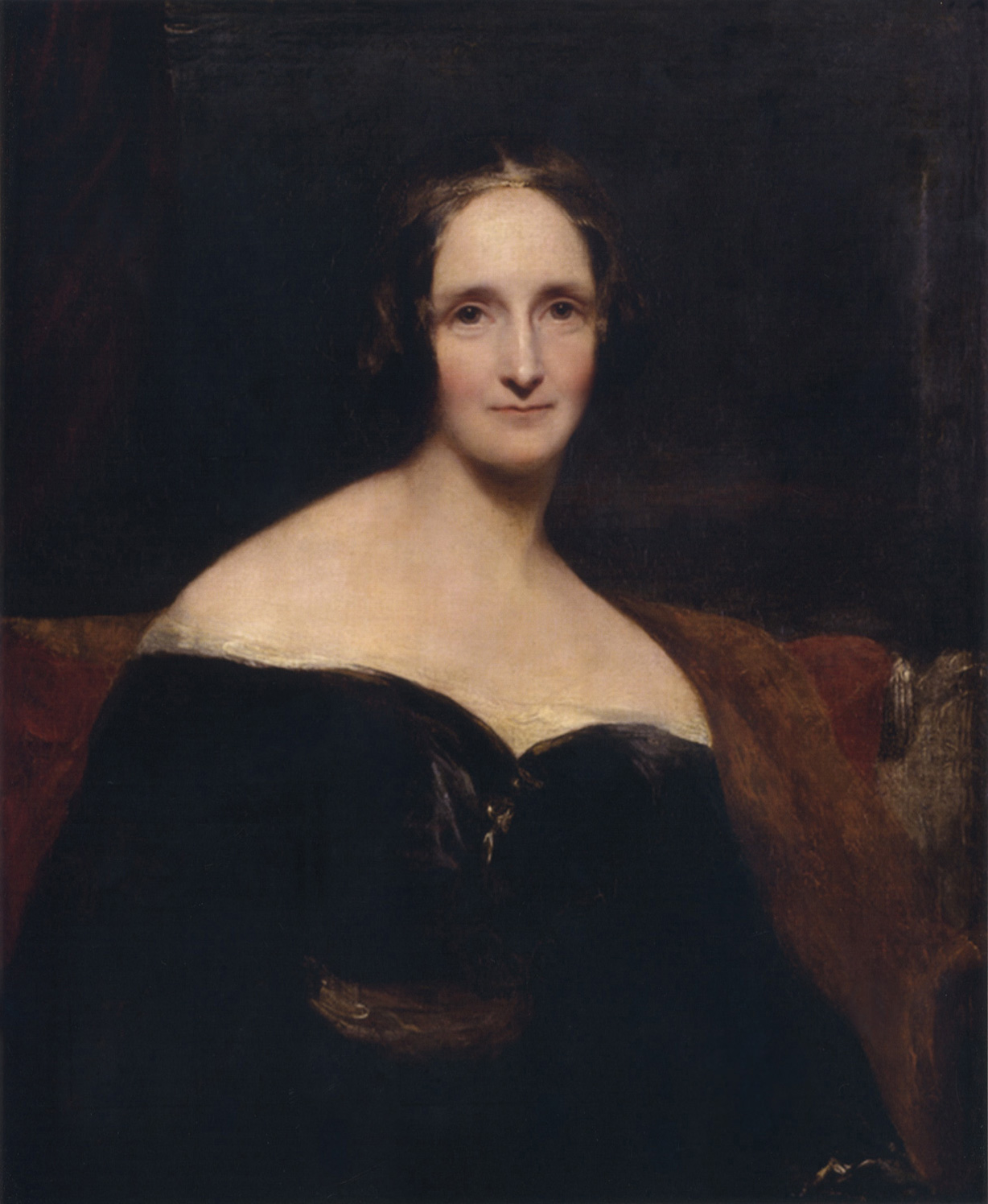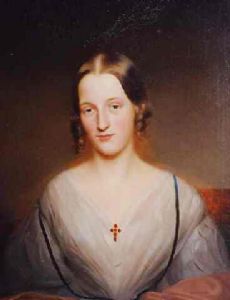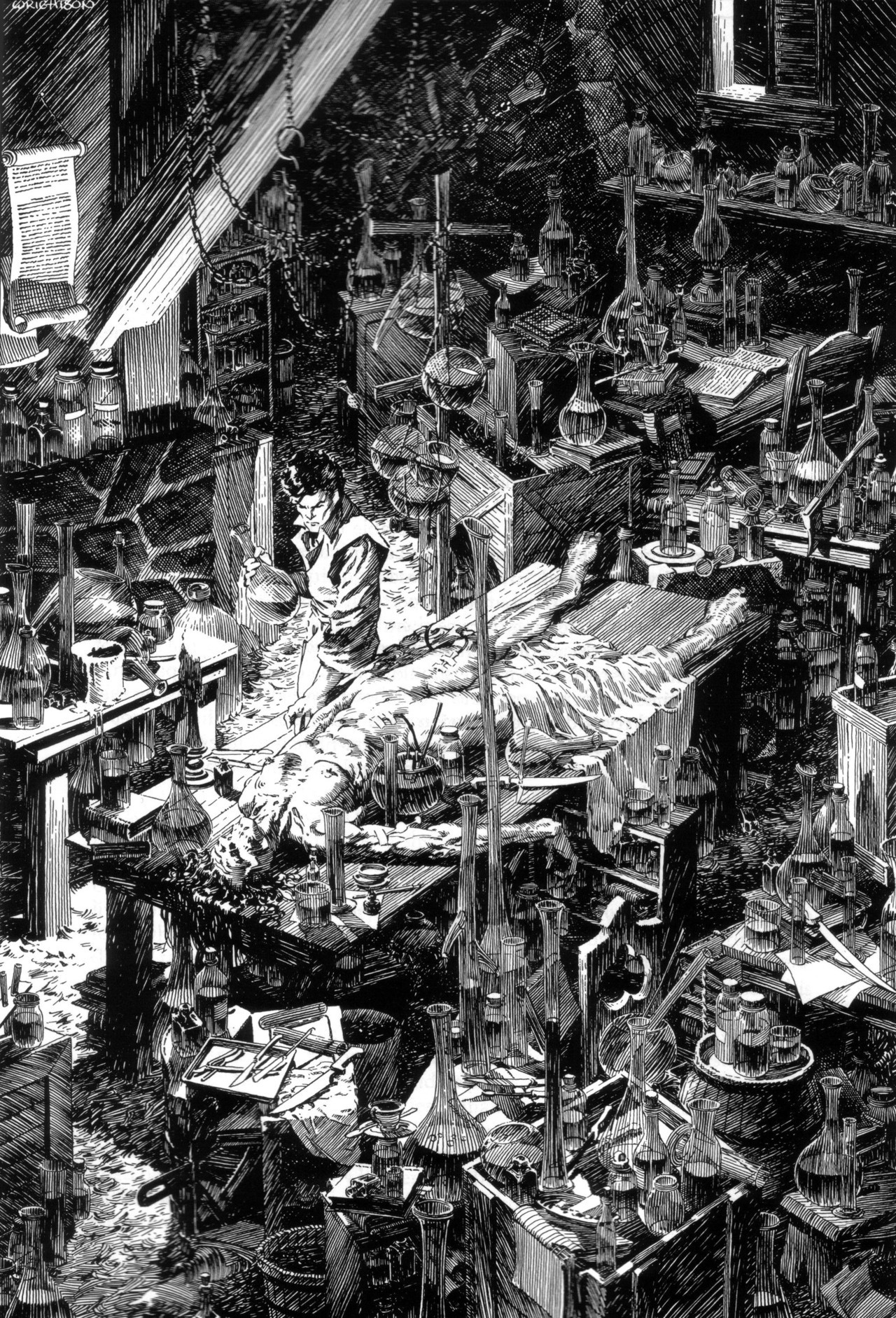(Photo source Librarything)
It is said that Frankenstein is about the horror and despair
of giving birth. Mary Shelley wrote it
after a dream she had, a dream that occurred after an evening of ghosts in Geneva. It also occurred after miscarriage and a
death of a child. Upon reading Mary
Shelley’s diaries, one cannot help but think of how she viewed pregnancy with a
tinge of fear and perhaps despair, not only because of her own experiences but
also because of her own birth. Yet, for
all of its focus on the fear of birth, it is absentee fatherhood or even husband
hood that seems the focus.
Mary Shelley by Richard Rothwell. (Source Wikicommons)
Mary
Shelley (hence MS) ran off with Percy Shelley (hence PS) while he was still
married to his first wife, Harriet.
Let’s be clear, he abandoned his wife and two children to run off with
Mary. At one point, he seemed to float
the idea of some type of threesome (perhaps foursome) with him as center, but
Harriet never bit. Despite the work of
some authors and critics, like Mark Twain, Harriet Shelley never had the good
press that MS and PS did. In all
fairness to PS, one should note that the marriage with Mary seems in large part
to have been an attempt to gain custody of his children by Harriet, after she
committed suicide. PS was not a faithful
husband to his second wife any more than he was to his first. It is possible (and I think it highly likely)
that PS had an affair Claire Claremont, MS’s step-sister.
Percy Shelley. (Source Shelleyblogspot)
Frankenstein
is about a man who creates life without the aid of a woman and flees in horror,
who does not take responsibility for what he has created or done. Considering the men in MS’s circle this
portrayal is hardly surprising. There
was love them and leave them Bryon whose relationships included ones with his half-sister
and Claire Clairmont, There was Shelley himself, who never seemed to suffer the
same way Mary did when she lost a child.
Byron. (Source Pinterest)
Reading
MS’ journals one is stuck not so much by the sheer number of pages that have
been removed, but by the sheer number of times that PS and Claire go off
somewhere while MS is suffering though a pregnancy related illness. How many time Claire burst into the Shelley’s
chambers. At the very least, it must
have been a strange relationship, a fleeing couple taking a third wheel with
them, the third wheel that had been used as cover for their relationship. Then MS to be left behind while PS and Claire
went rambling.
Claire Clairmont (Source wikiversity)
Did
Mary feel something of the abandonment that Harriet must have felt? MS did resent Claire, she confirmed as much
in her lifetime, is this part of the reason why?
And it
is those that the absentee father leaves who bear the cost. While it is true that Victor’s friend and
younger brother are murdered by the monster, his wife Elizabeth and
maid/companion Justine are murdered simply because of the actions and inactions
of both the monster and Victor. Victor
could have saved Justine if he only spoke up, but he doesn’t. He could have stopped the tragedy if he had
taken responsibility for his actions, had ever tried to right his mistake. He possess an inability to shoulder any part
of the blame or to act to stop the unfolding events.
And
that makes him a far different monster than the one he creates.
And one
wonders, one must wonder, if there is a bit of PS and Harriet in Victor and his
monster. PS marrying Harriet in part to
“save and educate” her, in part to shove it in his father’s face. Then losing interest in both wife and
children, leaving them for a younger girl.
There is no one cause for suicide, but surely PS’s treatment of Harriet
must have contributed something.
Even as
we condemn the monster for his actions, we feel pity for him.
Perhaps
the novel is also a bit of a dig at her father and is remarriage after the
death of Mary Wollstonecraft. Godwin
remarried in 1801 (Wollstonecraft died in 1797) and prior to that he had left
the young MS and her half-sister Fanny in the care of a friend. Victor does nothing for his son and yet seeks
to have another second family with Elizabeth much like Percy leaving Harriet,
or William Godwin marrying a woman with two children. Is the suicide of her half-sister, Fanny
Imlay, also present in the story? It is
unclear. But one could argue that Imlay
was abandoned by her family in an emotional sense at the least.
Fanny Imlay (Source Who fix)
Reading
this novel, it is hard not see it as anything but condemnation of a men who
father children, who marry and then leave, abandoning the women and children
but also leaving them with the hard work.
Then perhaps, returning and upset at the way things have turned out. Even at the beginning of science fiction,
even before the genre had a name, Shelley was showing us what it could be. It puts the Sad and Rabid puppies to shame,
doesn’t it?








Comments
Post a Comment